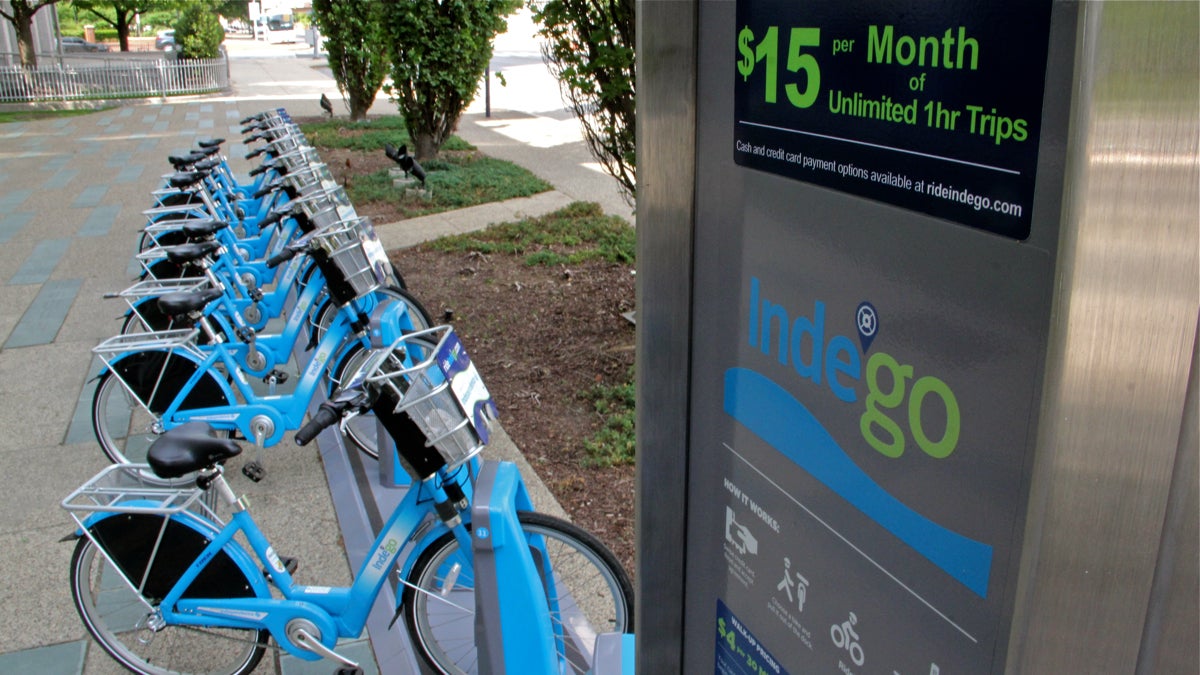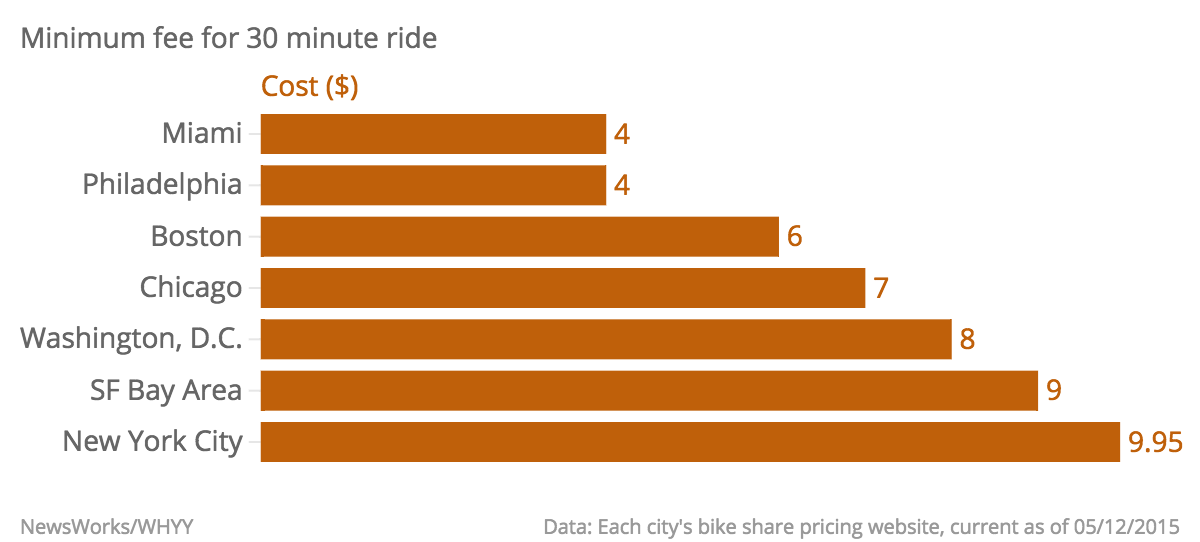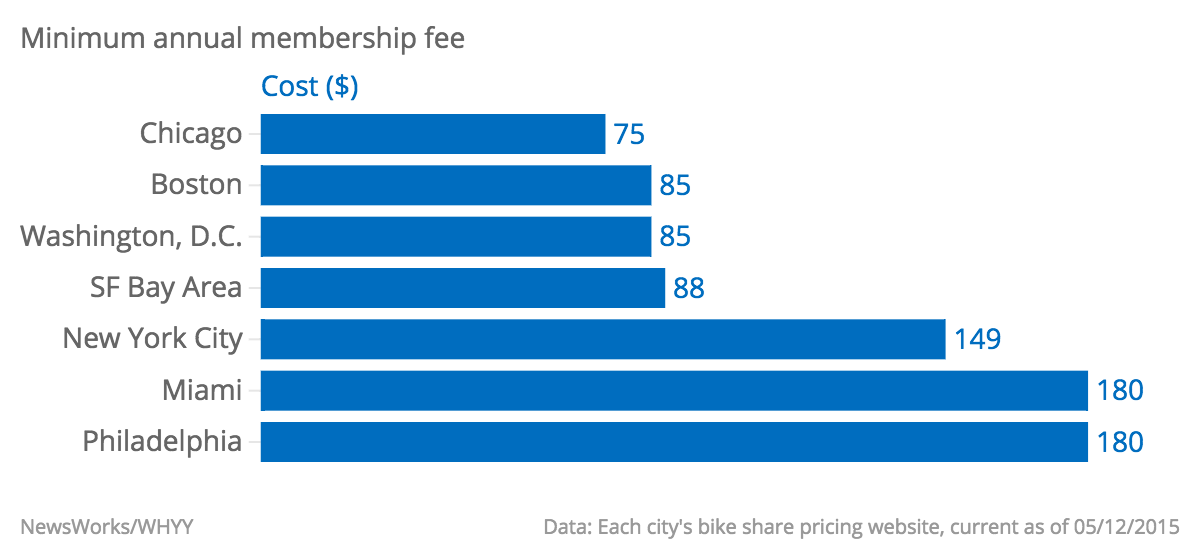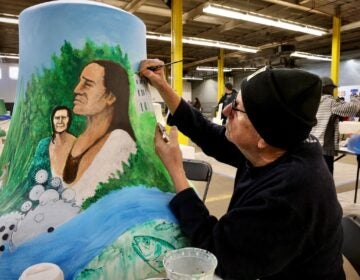How does Philly’s bike-share program stack up against the rest?

A bike-share station at Race and Sixth streets in Philadelphia offers rentals at $4 per hour or $15 per month for unlimited trips. (Emma Lee/WHYY)
Stereotypical bike-share users are deep-pocketed tourists and tree-hugging hipsters. If Philadelphia wants to succeed where other programs have failed — and get more low-income residents aboard — it may come down to economics.
When deciding how much to charge for a spin on an Indego bike, Andrew Stober of the Mayor’s Office of Transportation and Utilities said officials zeroed in on making prices work for all riders. The city conducted focus groups to understand the particular needs of poorer communities.
“We have really structured our fares around putting users in control of how much they spend and lowering the barrier to entry to using the system,” said Stober.
For tourists, that means making it clear how much a ride actually costs. Many cities offer day passes for $10 or less that give riders an unlimited number of rides — but each one is typically under a half hour or users risk overage fees.
“If you walk up at the kiosk, you just pay $4 per half hour,” said Stober of Indego. “There are no surprises.”

For locals, Philadelphia offers two plans: a flex pass, for $10 per year, in which you pay $4 for each hourlong ride, or a $15 monthly pass with unlimited hourlong rides. Members always pay the same $4 per hour rate if extending a rental.
Compared with most other cities, Indego costs less to get started, gives more time for each ride, and is easier to avoid racking up exorbitant late fees. In Washington, D.C., for example, members get free half-hour rides with tardy returns starting at $1.50 and rising to a total of more than $70 per day.
But the heaviest users may want to stick with their own bikes. Since Philadelphia does not offer an annual membership, year-round members will shell out $180, about $100 more than riders in Chicago, Boston, or D.C.

Stober said the decision to forgo a discounted annual membership reflects the reality of winter in the Northeast.
“You shouldn’t be paying for a service you’re not using,” he said. “That’s really how we came up with our 30-day approach to fees.”
Randy LoBasso of the Bicycle Coalition of Greater Philadelphia said the monthly membership offers flexibility at a reasonable price, especially for new cyclists.
“It’s much less than a SEPTA pass,” he said. “And they don’t have to commit to necessarily doing it a year, which I think is great.”
If the price point turns out to be too high, of course, there’s always the option for the program to shift gears.
“They can always add promotions or they can introduce different membership mechanisms,” said Pinar Yildirim, a professor of marketing at the Wharton School.
The first of such tactics has already been rolled out. In honor of National Bike to Work Day last Friday, the $4 per half hour visitor fee was cut to just $1.
For Stober, the biggest financial innovation of the program isn’t related to pricing, but rather to payment. Philadelphia, he said, has the only large bike-share that allows members to pay with cash — by visiting 7-Eleven and Family Dollar stores — instead of requiring a credit card.
As of the end of last week, Indego bikers had taken 33,000 rides and collected 2,800 monthly members.
WHYY is your source for fact-based, in-depth journalism and information. As a nonprofit organization, we rely on financial support from readers like you. Please give today.




